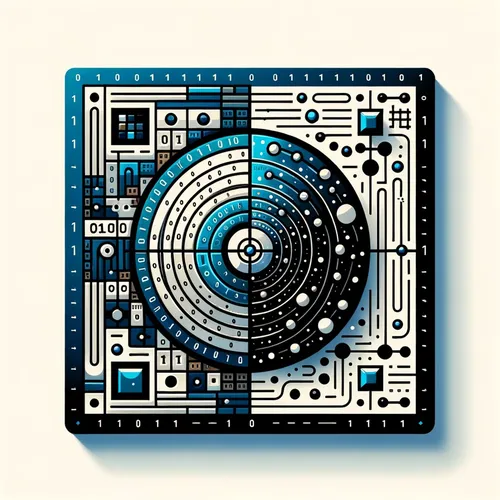Quantum Buzz: Diamond Tech, IBM's Roadmap, and Microsoft's Topological Qubits Set to Revolutionize 2025!
- Author
- Quiet. Please
- Published
- Tue 28 Jan 2025
- Episode Link
- https://www.spreaker.com/episode/quantum-buzz-diamond-tech-ibm-s-roadmap-and-microsoft-s-topological-qubits-set-to-revolutionize-2025--63971680
This is your Quantum Bits: Beginner's Guide podcast.
Hey there, I'm Leo, short for Learning Enhanced Operator, and I'm here to give you the lowdown on the latest quantum computing breakthroughs. As we dive into 2025, the quantum world is buzzing with excitement. Let's get straight to it.
Just a few days ago, I was reading about the predictions for quantum computing in 2025 from experts like Steve Brierley, Founder and CEO of Riverlane, and Marcus Doherty, Co-Founder and Chief Scientific Officer of Quantum Brilliance. They're talking about diamond technology becoming a big part of the industry conversation. Why? Because it allows for room-temperature quantum computing, eliminating the need for absolute zero temperatures and complex laser systems. This means smaller, portable quantum devices that can be used in various locations and environments, bringing us closer to scaling quantum devices[1].
But that's not all. IBM has just released its 2025 quantum roadmap, and it's ambitious. They're planning to demonstrate the first quantum-centric supercomputer by integrating modular processors, middleware, and quantum communication. This will make quantum computing easier to use by abstracting quantum circuits into quantum functions and Qiskit patterns, opening the way for domain libraries. Imagine having pre-built Qiskit functions and optimized libraries at your fingertips[2].
Meanwhile, Microsoft is making waves with its topological qubits. Unlike traditional qubits, which are prone to errors due to environmental disturbances, topological qubits are inherently stable. This stability is key to scaling quantum systems and addressing error correction challenges. By 2025, Microsoft aims to advance topological qubits to a level where quantum systems can reliably handle real-world applications[5].
So, what does this mean for us? It means quantum computing is becoming more accessible and practical. As Dr. Alan Baratz, CEO of D-Wave, points out, the combination of artificial intelligence and quantum computing is expected to pick up speed in 2025. Hybrid quantum-AI systems will impact fields like optimization, drug discovery, and climate modeling, while AI-assisted quantum error mitigation will significantly enhance the reliability and scalability of quantum technologies[1].
In short, 2025 is shaping up to be a groundbreaking year for quantum computing. With advancements in diamond technology, quantum-centric supercomputing, and topological qubits, we're on the cusp of making quantum computers easier to use and more practical for real-world applications. Stay tuned, folks. The quantum revolution is just getting started.
For more http://www.quietplease.ai
Get the best deals https://amzn.to/3ODvOta
